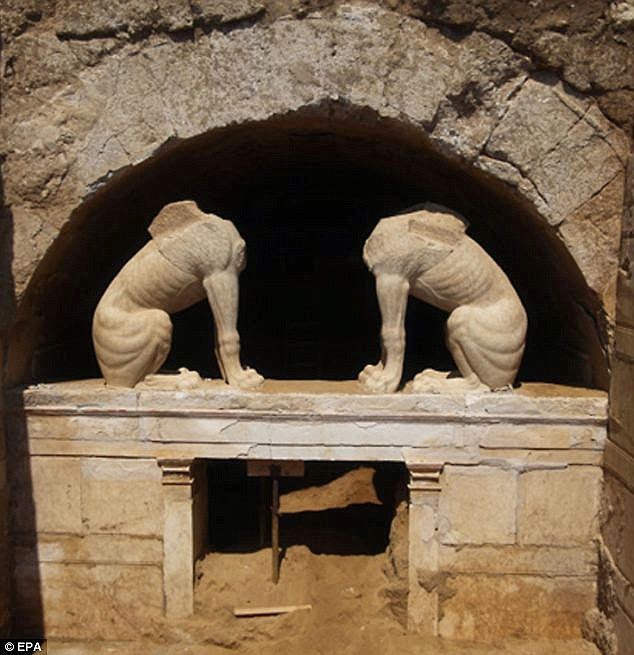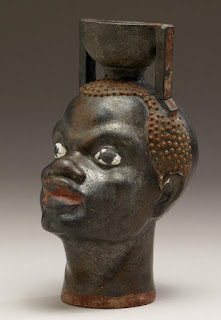Amphipolis: Greece Halts Search for Alexander the Great Tomb
The Greek Government led by Alexis Tsipras decided to stop the excavations at the Amphipolis site where it was believed that the tomb of Alexander the Great was located, Telegraf.mk reads.
Media in Athens write that the activities taken so far, did not yield the expected results, and on top of it all, funds are not planned for this project because of the austerity measures.
"There aren't many excavations in Greece that have received such support. At this minute, there is no need of more," Deputy Culture Minister, Nikos Xydakis told Kathiermini newspaper recently.
At the Amphipolis site, located in northeastern Greece, near Asprovalta, coins depicting the face of Alexander the Great were found and a large antique tomb, but the identity of the person who was buried in it is still unknown. Beautifully preserved sculptures and mosaics were also discovered.
The speculations on who was buried there, remain. The tomb might be the resting place of Alexander's wife Roxana, his mother Olympia or it could belong to one of his generals.
Historians and archaeologists believe that it is unlikely that the tomb which was unearthed in Amphipolis belonged to Alexander the Great. One of the skeletons belonged to a "distinguished person", maybe Roxana, the wife of the Macedonian ruler or Olympia, his mother, but also it could be one of his generals.
Few Greek renowned archeologists are constantly attacking the authorities that the excavations in Amphipolis are used for political goals instead of scientific ones, i.e. to continue the row regarding the name issue with Macedonia. They believe that previously Samaras and now Tsipras are attempting to divert the attention from the real problems in the country and prove the "exclusivity" Greece has over the antique past.
This question was posed to the mediator in the name dispute, Matthew Nimetz, at one of the last meetings with the Macedonian and Greek negotiators. Then, the Greek journalists asked Nimetz to state his position on the excavations at the Amphipolis site and whether it proved that Macedonian was Greek.
The mediator rejected this thesis, saying he visited many archeological sites in Macedonia and Greece that testify of the greatness of the ancient Macedonian civilization.
Viktor Lilcic: Speculative ideas about the tomb multiply
According to our archeologists, there are no evidence that the tomb of Alexander the Great is located at the Amphipolis site, and the reject the idea that it could belong to Roxana, his wife. Viktor Lilcic, director of the Cultural Heritage Protection Office, says that many different theories emerge about the hill, known as tumulus, which indicates a burial site is found underneath.
Viktor Lilcic, director of the Cultural Heritage Protection Office. Photo: Vlatko Perkovski
"Here's another speculative idea. Cassander, after the murder of Olympia, in 309 B.C., the 14-year-old son of Alexander, the Prince Alexander IV, in the month of August, he would become a dangerous opponent because then, according to the Macedonian law, when he would become of full age he would succeed the Macedonian throne. Cassander could have ordered the commander of the guards to take him and his mother Roxana in Amphipolis, to kill them and hide them, i.e. bury the bodies," Lilcic explains.
The head of the cultural heritage office asks hypothetically where the hidden bodies of Roxana and Prince Alexander IV in Amphipolis are.
"The city had a large eastern necropolis. He probably didn’t hide them there. Maybe the bodies were hidden at the old archaic cemeteries in the inside of the Kasta tumulus,
He adds that in 309 B.C., the cemeteries of Kasta were old and probably little used or no used at all.
"Then I would understand why the tumulus is surrounded by a circular fence, and let's say, by the most loyal soldiers of Alexander the Great. His faithful friends who he knew since they were children, when they practiced military skills together, the generals Nearchus, Laomedon, Androstan, who if this thesis is proved, it would mean they remained faithful to the king until the end," Lilcic adds.
At the same time, Lilcic says that the two generals, maybe because they did not know the exact location of the tomb of Prince Alexander IV, have taken the task to realize this great construction project, i.e. to surround the Kasta tumulus with high walls. Precisely because of the size of the tumulus the theories have emerged that a very important person of noble origin was buried inside.






